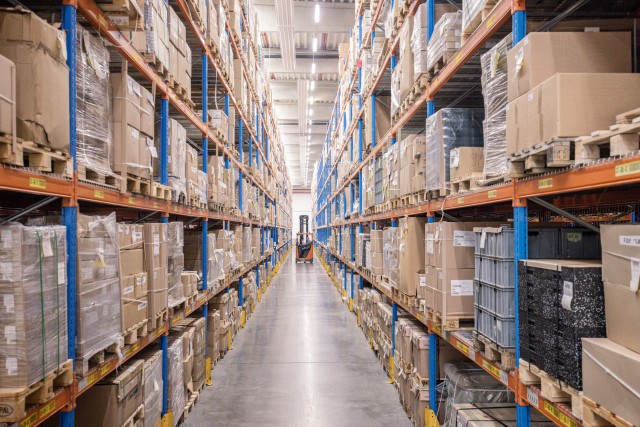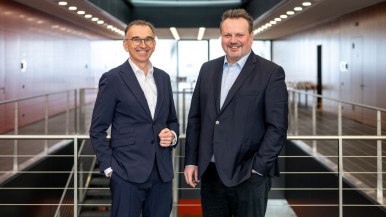This is why Bosch focuses on continuously improving its robustness and its contribution to sustainability, while at the same time pressing ahead with its further development – through supply chains characterized by supplier networks that foster competition and innovation. Great importance is therefore attached to sustainability and compliance: Bosch wants to work with its suppliers to reduce supply risks, avoid bottlenecks, and improve the economic efficiency of everyone involved. To achieve this, the company fosters global, regional, and local supplier relationships. The strategic importance of sustainable supply chains is also reflected in the company’s sustainability goals, which focus on respect for human rights, occupational health and safety, and climate action. On this basis, Bosch also supports the UN Guiding Principles on Business and Human Rights, as well as the German government’s National Action Plan (NAP) for human rights. In addition, Bosch implements the requirements of the German Act on Corporate Due Diligence Obligations in Supply Chains (Lieferkettensorgfaltspflichtengesetz, LkSG).
Purchasing: procurement of components and raw materials
In the supply chain between supplier and customer, Bosch assigns a key role to purchasing. Whether it’s raw materials for the manufacture of MEMS sensors for fitness trackers or solenoids for power drill motors – all raw materials and supplies have to be purchased on the global procurement markets. It’s from these goods that products are created that help improve quality of life and conserve natural resources. In this context, Bosch works with suppliers in some 60 countries. In 2023, the Bosch Group purchased goods and services worth 49.8 billion euros from some 35,000 suppliers worldwide (2023: 50.9 billion euros). Only a very small proportion of this is due to the direct procurement of raw materials. The acquisition of components – mostly in the form of semi-finished products and finished parts – accounts for the majority of the resources used in the supply chain. Most of these purchases are of electronic and mechanical components, but Bosch also buys merchandise, software, services, capital goods, and operating resources. The divisions are responsible for the purchasing of production materials, which is organized locally. Goods and materials not directly related to production are mainly procured at the corporate level by the indirect purchasing department.
Logistics: provision of materials and products
Transparency and efficiency also play an important role in Bosch’s supply chains. Bosch includes customer wishes in the early stages of its logistics planning, and in its collaboration with its suppliers, it takes into account factors such as cost, delivery time, and transport quality. Its logistics teams pay equally close attention to keeping carbon emissions as low as possible and to conserving resources. In this context, a transport management center, or TMC, is responsible for global transport strategy, designing transparent, efficient, and environmentally friendly transport for road, sea, air, and rail freight in the regions. In the development of packaging and the standardization of processes as well, the logistics department’s approach is one of sustainability. For Bosch, it’s important not only to reduce costs and carbon emissions, but also to save on raw materials and return them to a recycling cycle. In this way, the company’s logistics operations contribute to the overriding corporate goal of climate neutrality, while at the same time fulfilling their around-the-clock task of delivering materials and products on time. To facilitate this, Bosch has a global logistics network comprising some 770 warehouse locations. Day in and day out, a networked warehousing system ensures that the company’s roughly 240 manufacturing plants are supplied with parts and raw materials, and that finished products are delivered to customers worldwide.
Partnerships: working with suppliers on equal terms
For Bosch, there’s no doubt that strong partnerships contribute to the success of each company. Partnering with regional and local suppliers ensures a high degree of supply-chain robustness and availability. This is why Bosch works hand in hand with its suppliers right from the start of production and seeks to ensure competitiveness on both sides. In this context, purchasing teams work with suppliers to come up with product designs that allow the cost-optimized manufacturing of competitive products. One reason why this works is a quality management system that ensures the delivery of faultless goods right from the start of production. In addition to this preventive quality assurance, purchasing teams also work with suppliers to ensure that the required quality levels are continuously maintained. Such work is also backed up by training programs. Moreover, Bosch offers its suppliers attractive financing programs to improve liquidity.
Competitiveness: additional training for suppliers
Bosch suppliers have to satisfy minimum standards. As early as the selection process for potential suppliers, the Bosch purchasing teams consider criteria such as sustainability in line with group-wide requirements. The criteria for awarding new contracts include quality, price conditions, and the supplier’s track record. Optimization of process costs also plays an important role in this collaboration. Bosch is also at pains to systematically help suppliers develop their potential, and thus to ensure they satisfy quality, process, and sustainability requirements.
For Bosch, the aim is partnerships that allow both parties to remain competitive over the long term. Outstanding suppliers are classified as preferred suppliers, a distinction that can be conferred on suppliers of either direct or indirect materials. Preferred suppliers are given priority in new projects and involved at an early stage in strategies and development projects. This allows them to align their operations with requirements, and to grow together with Bosch. The supplier of technology and services regularly honors the best of its suppliers from around the world with regional and global supplier awards.
Risk management: stability through shorter supply chains
Worldwide, some 35,000 people at Bosch work in supply chain management – roughly 11,000 in purchasing and 24,000 in logistics. Together, they ensure that nearly 240 manufacturing plants are supplied with parts and raw materials on a daily basis, and that finished products are delivered to Bosch customers worldwide. They are an integral part of the overall product development process – from the innovation phase to start of production to supplies of legacy products. The corporate supply chain management department coordinates internal and external requirements, establishes company-wide standards, and checks that they are complied with. Each unit’s purchasing and logistics managers are responsible for putting these requirements into practice.
In the event of severe natural disasters or acute disruptions of global supply chains, there are precisely defined procedures for setting up specialized task forces. In this context, Bosch relies as a matter of principle on a comprehensive system of supply chain risk management that works proactively and is capable of reacting very quickly. One key factor for success is the local-for-local approach, under which Bosch manufacturing operations are located where its customers are. The company draws mainly on regional sources of supply, shortening supply chains and making them less vulnerable. And the aim of its multi-supplier strategy is to be able to switch at an early stage to alternative sources and supply routes within the global supplier network; to adapt transport management at short notice; and to use alternative manufacturing sites in the global manufacturing network.
Sustainability: compliance with environmental and social standards
Supply chains can only be designed responsibly if there is clarity about compliance with environmental and social standards. This gives Bosch the basis on which to give its suppliers across the globe pinpointed help in continuously improving their efforts toward achieving sustainability. Through contractual frameworks, sustainability-related checks, and resulting specific measures, Bosch aims for a high degree of sustainability and compliance in its supplier network. If there is a suspicion of misconduct, such as a violation of the Bosch sustainability standards, a whistleblower system allows associates, business partners, and other third parties to report this, including anonymously.
Together with its suppliers, Bosch is committed to compliance with high environmental and social standards in its supply chains. And because Bosch is both a manufacturer and a supplier, its sustainability standards themselves have an impact on thousands of suppliers and sub-suppliers, such as when it comes to the reduction of carbon emissions.
On-site checks are a key element in evaluating suppliers. Bosch checks all new suppliers before doing business with them. Existing supplier relationships are also subject to checks. The decision to check a supplier depends on risk and on the demands of a particular situation. Only if they pass muster will existing suppliers be given new contracts. If active suppliers are found to have behaved unlawfully, or if their sustainability efforts are unacceptable, they will be excluded from future contract awards. If they are found to have contravened certain sustainability standards, the purchasing departments will take up the matter. The aim is to quickly remedy any shortcomings together with the supplier and take suitable precautions for the future. If these measures fail to work, or if the supplier again falls below Bosch standards or breaks the law, the company reserves the right to end the business relationship.
Digitalization: status of inventories and requirements at a glance
Bosch believes that the digitalization of purchasing and logistics will help make supply chains more sustainable and robust. The company systematically invests in new technologies in order to continuously optimize workflows and global networking. Digitalization can make purchasing and logistics processes faster, less resource-consuming, and more cost-efficient. One crucial factor here is a high level of transparency regarding the status of inventories and requirements – especially when bottlenecks appear along the value stream from supplier to customer. The aim is to know in real time how a particular customer or supplier is affected across several manufacturing stages, and by what means of transport a particular type of material is currently in transit. This sort of transparency allows production schedules to be rearranged in good time, special deliveries to be organized, and agreements to be reached with customers.
To record, communicate, and exchange the data this requires, Bosch and its suppliers use the SupplyOn platform. This allows them to collaborate closely and exchange information reliably and also ensures that data quality always meets the required standards. The platform thus reduces effort and the time taken by processes, while maintaining excellent quality and paying attention to sustainability. In this way, Bosch can react even faster and more specifically to customers’ wishes, improve its contribution to sustainability, and provide a better overview of the growing number of regulatory demands made of the supply chain. By digitalizing its supply chains, Bosch is improving their robustness – an important building block for a sound economy.





